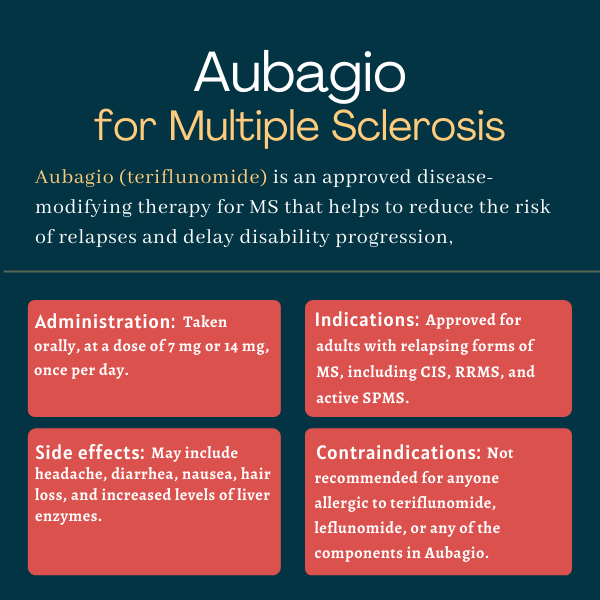
FAQs about Aubagio
Aubagio was approved by the U.S. Food and Drug Administration in September 2012 for treating adults with relapsing forms of multiple sclerosis (MS), including clinically isolated syndrome, relapsing-remitting MS, and active secondary progressive MS. Generic versions of the medication started becoming available in 2023.
Aubagio is not recommended for use during pregnancy and comes with a boxed warning that it could cause harm to an unborn fetus. Patients able to become pregnant should use effective contraception while receiving this therapy. If pregnancy occurs while on Aubagio, patients should immediately notify their healthcare provider, and treatment will need to be stopped.
There are no known interactions between Aubagio and alcohol, but it is possible that drinking while using the medication could exacerbate certain side effects or increase the risk of liver damage. Alcohol can also make disease symptoms worse for some patients. Individuals should discuss with their healthcare providers whether and how much alcohol is safe for them to drink.
Every person responds differently to a given treatment, and there is no standard timeline for how soon Aubagio will become effective. Patients should ask their healthcare providers how Aubagio may help in their particular case.
Hair loss, or alopecia, is among the most common side effects of Aubagio, affecting up to 13% of patients in clinical trials. It is usually mild or moderate and resolves spontaneously in most people without stopping treatment. Weight gain has not been reported as a side effect of Aubagio.
 Fact-checked by
Fact-checked by 


